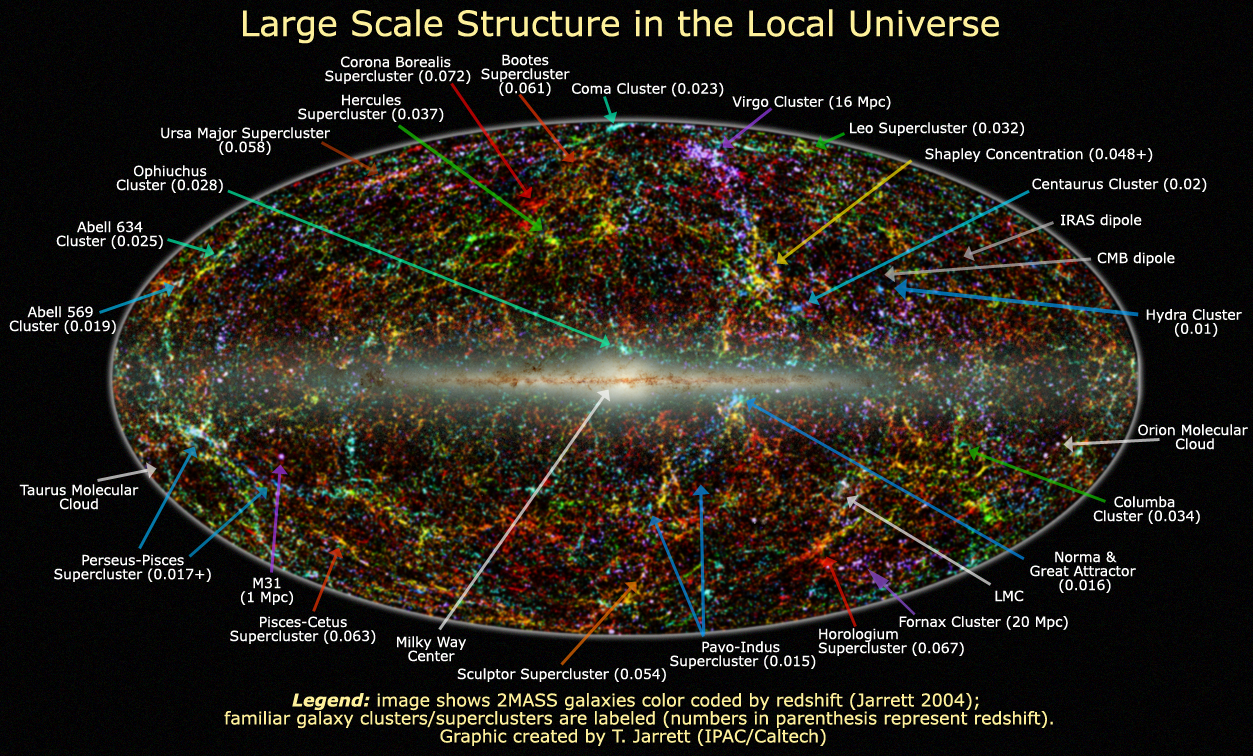Recent measurements reveal that the Universe is at least 150 billion light-years in diameter. For comparison, its age is estimated to be about 13.7 billion years. Doesn’t make sense does it?
Since some of you may be wondering what kind of disparity we’re talking about, let me elaborate. You see, to arrive at that age, scientists had to measure light (or electromagnetic radiation) coming from the outermost borders of the Universe. This radiation, specifically known as the cosmic microwave background radiation is a throwback to the youngest years of the Universe. So if it had to take 13.7 billion years for light coming from the outermost regions to reach us, then we should be expecting a diameter within that order of magnitude. Simply put, around twice that value or 27.4 billion light-years. But lo and behold, we’re seeing a number much much larger than that.
This value, however, only makes sense if our Universe’s size were constant. Studies have shown that that isn’t the case. In fact, separate observations have shown that the Universe is actually expanding. To top it all, it is confirmed that it does so at an accelerated rate.
Lets make a very simplified analogy, just to give us a rough idea regarding the source of discrepancy. Imagine yourself having a friend standing on a planet at the outermost galaxy. Lets also assume you both have superhuman strength and are able to play catch with indestructible balls (whose constant speed you both know) that takes a straight path, and that no obstruction exists along the said path.
If he throws a ball, you’d be able to determine either the time of flight or the distance traveled if you knew the other physical quantity. Thus, if the time of flight is 13.7 billion years and the ball was traveling at the speed of light, neglecting relativistic effects, the distance should be 13.7 billion light-years.
But what if your friend is moving towards or away from you? We would have to make certain adjustments. You would still be able to measure the said physical quantities if he were made to throw a good number of balls at regular intervals and if you made some adjustments to your equation, taking into consideration the relative velocities involved.
After the first throw, if your friend is moving away, the distance between you and him would be greater than 13.7 billion years. Even greater distances can be achieved if he were moving away at increasing velocities.
Search This Blog
Translate
Popular Posts
-
A cloud of gas and dust in outer space, visible in the night sky either as an indistinct bright patch or as a dark silhouette against... (i...
-
The Moon is familiar; it always looks the same. We know that the Earth rotates, that’s why the Sun, Moon and stars seem to move through t...
-
Albert Einstein 1879-1955 Newton's theory of gravitation was soon accepted without question, and it remained unquesti...
-
Hardcover: 496 pages Publisher: World Scientific Publishing Company (April 2009) Language: English ISBN-10: 1848162723 ISBN-13:...
Blog Archive
-
▼
2012
(74)
-
▼
December
(29)
- What is a light year? (How Light Works)
- Origin of Light (How Light Works)
- Pigments and Absorption of Light (How Light Works)
- Making Colors of light (How Light Works)
- Lasers (How Light Works)
- Producing a Photon (How Light Works)
- Wave-Particle Duality of Light (How Light Works)
- Light as Particles (How Light Works)
- Light Frequencies (How Light Works)
- Light as Waves (How Light Works)
- Light as Rays (How Light Works)
- What is Ionizing Radiation?
- Comet Hyakutake :The Great Comet of 1996
- Galaxy Clusters and Large-Scale Structure
- Star clusters
- The Age of the Universe
- Does vacuum have friction?
- What is a vacuum? Is it matter?
- What is a Star?
- Did Galileo Invent the Telescope?
- What Happens To The Human Body In A Vacuum?
- How Long Does a Star Live?
- How did the universe begin?
- Why Do Stars Twinkle?
- Why Does The Moon Shine?
- How big is the universe?
- Will the universe ever end?
- What would happen to the planets if the Sun sudden...
- What is space?
-
▼
December
(29)





0 comments:
Post a Comment
IT'S YOUR TURN...
To respond : Drop in just anything but spam. Please don't drop comments just to add your link here. You can use basic HTML tags.
Important : If you're looking for further clarification, advice or support, please address by comment.